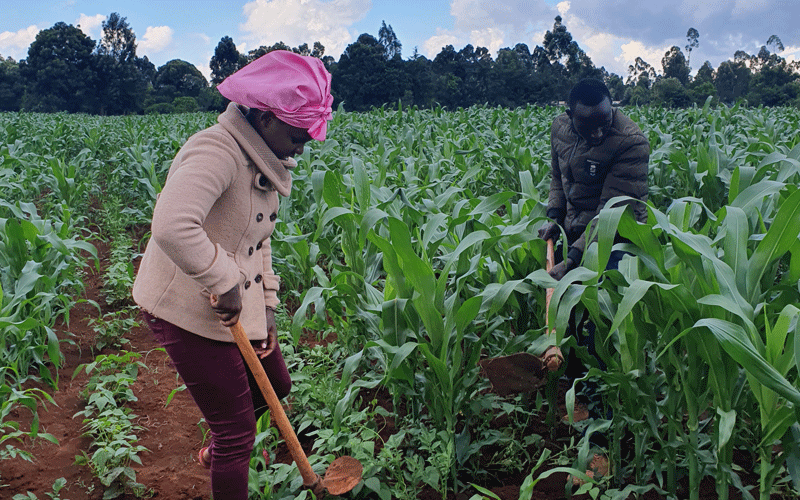Boston Marathon winner dabbles in his first love at Covid-19 pandemic toll

Ericsson Kiprono
The mooing of cows grows louder at Lawrence Cherono’s dairy farm in Ziwa, Uasin-Gishu County when I arrive informs that it is milking time.
Dressed in a blue shirt and black gumboots, ready to milk the animals, it is time for the real work that occupies the champion’s mind at the moment .
Apart from his dog that barks loudly in the background having noticed strangers, the tranquillity at the homestead is part of what Boston Marathon champion attributes to the high production from his cows.
Cherono keeps six animals, all under zero-grazing on his one acre.
Cherono went into commercial dairy farming in 2019 after visiting some farms in Eldoret.
“I was part of a group of farmers sponsored by an international NGO to travel to model farms in the town. The tour was an eye-opener.”
Upon his return, Cherono began to implement the lessons he had picked, included on management, quality control systems, feeds and records.
“Initially, I had two Friesians, which were giving me at most 30 litres daily. I served them with fertilised egg to end up with quality heifers.
I also bought two high-yielding Friesians animals at Sh100,000 each,”he said.
His efforts paid off in a big way.
From my two top producing cows, I get 42 litres from each every day, milking four times at 5am, 12pm, 6pm and 10pm.
The other three cows offer me 35 litres each and I milk them three times a day, at 5am, 12pm and 6pm,” he says, adding that for the two cows, they offer him 22 litres during the first milking, 10 in the second and five litres each in the third and fourth sessions.
Cherono exclusively feeds his cows on green maize,and nappier grass . He has planted the DK90-89 variety that matures in three months.
The maize, he says, has high protein that boosts milk production.
On the farm he also has several bunkers measuring 6x11 metres each where he stores silage to feed his cows throughout the year. 
Photo/(PD/ERICSON KIPRONO)
Silage
“I chop the maize stalks and cobs together and leave them in the sun to dry for two days. I then add water and molasses to catalyse the fermentation process and then cover it with a black plastic bag of gauge 1,000 because the bunker should be airtight at all times,” he said.
The silage is then ready for consumption after 21 days, noting silage contains 17-20 per cent dry matter and it helps preserve nutritive value of the feed.
“I have been training alone for the last two months just to keep fit after Boston Marathon organisers cancelled the (April) race,” he said.
“I was in good shape and my target was to defend my title,” said Cherono, who is also the Chicago Marathon champion.
He also said his preparations had started way back in December and he was optimistic that he would bag victory something he has now shifted to the next season.
“A whole season has gone to waste due to the coronavirus which caught everybody unaware with races cancelled across the globe. Athletes depend on competition and we are all at home doing farming praying that the virus may be contained,” he said.
Born on August 7, 1988 in Kuikui village in Barwesa, Baringo County, the soft-spoken marathoner had to run for about 10 km every day in pursuit of basic education at Kuikui Primary School.
“We would run throughout because lunch time wasn’t enough for us. I used to get back to school late and we were punished by being asked to run 12 laps around the field,” said Cherono.
Baringo’s Athletics Kenya chairman Barnabas Kitilit was the Principal at Poror High School in Eldama Ravine when Cherono joined the institution and encouraged the diminutive boy to keep training even though Cherono admits he wasn’t the brightest .



